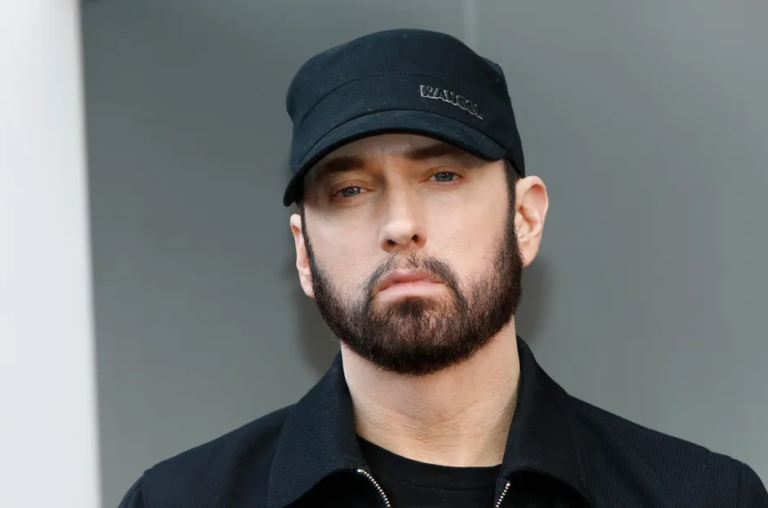Why Was Director Carl Rinsch Indicted For $11 Million Netflix Fraud?
Director Carl Erik Rinsch has been indicted on serious charges of fraud and money laundering, accused of misappropriating $11 million from Netflix that was intended for the production of his science fiction TV series White Horse. Instead of using the funds for the show, Rinsch allegedly spent the money on luxury purchases, risky investments, and legal battles, leaving the project incomplete.
Allegations of Fraud and Lavish Spending
Rinsch, 47, was arrested in West Hollywood on Tuesday, according to a statement from the U.S. Attorney’s Office for the Southern District of New York. The charges include wire fraud, money laundering, and five counts of illicit fund transactions. The indictment alleges that Rinsch demanded $11 million from Netflix in order to complete White Horse—also known as Conquest—but instead spent the money on high-end cars, luxury furniture, and even paid for stays at the Four Seasons hotel.

Documents show that Rinsch used the funds for investments in biopharmaceutical stocks and cryptocurrency, which resulted in significant losses and some unexpected windfalls. Meanwhile, he continued to assure Netflix that the series was progressing well, despite the mounting financial issues.
The White Horse Saga: From Promise to Collapse
In January 2018, Rinsch pitched the White Horse series to Netflix executives, including Cindy Holland, then-VP of Original Content. The series, with investment from actor Keanu Reeves—who served as Rinsch’s mentor—was already partially filmed, including six short episodes and a three-minute trailer. Netflix agreed to back the project with $44 million to produce the first season.
However, the production quickly ran into trouble. Although filming began in Brazil, Rinsch exceeded the budget and failed to deliver as promised. According to court documents, Netflix was initially supportive, advancing additional funds when Rinsch demanded more money, even as the series faced delays. By December 2019, production had come to a halt, and Rinsch expanded the script, claiming he needed another $11 million to complete the show.

The Fallout: From Crisis to Lavish Spending
In March 2020, Netflix agreed to provide the requested $11 million to help finish the show. However, soon after, the COVID-19 pandemic forced global production shutdowns, further stalling the project. By mid-2020, Netflix executives grew increasingly concerned after a meeting with Rinsch, where he spent most of the time discussing personal theories on topics like COVID-19 and the universe, rather than the show’s progress. It was at this point that Netflix executives began to doubt Rinsch’s intentions to finish the series, and the lead actor eventually dropped out.
Despite these setbacks, Rinsch allegedly transferred most of the $11 million into his brokerage account, where he engaged in high-risk stock market investments, losing half of the funds. Later, he ventured into cryptocurrency, where he reportedly made a profit.
In late 2021, Rinsch spent a significant portion of the remaining money on luxury items, claiming that these purchases were necessary for the second season of White Horse—which Netflix had not approved. According to the court ruling, Rinsch spent over $638,000 on luxury mattresses, $295,000 on bedding and linens, and $5.4 million on antique furniture. Additionally, he purchased two Rolls Royces for $1.68 million and even paid for his rent in Spain.

Legal Trouble and Court Rulings
Rinsch’s lavish spending did not go unnoticed. In the wake of these activities, Netflix pursued legal action against him. In a lengthy arbitration ruling, an arbitrator ordered to repay $11.8 million, a decision that was upheld by a Los Angeles Superior Court judge in November 2023. filed a petition to overturn the ruling, arguing that the arbitrator had misunderstood the contract’s requirements, but the court upheld the decision.
The grand jury indictment unsealed on Tuesday now brings serious criminal charges against Rinsch, who faces potential years in prison if convicted. The government is also seeking to seize his assets, including luxury cars and other possessions bought with Netflix’s funds.

Conclusion: A Cautionary Tale
Carl Erik case serves as a cautionary tale about the dangers of mismanaging funds in the entertainment industry. What started as a promising science fiction series quickly spiraled into a financial and legal nightmare. As the case unfolds, Rinsch’s actions highlight the consequences of diverting project funds for personal gain and the severe legal repercussions that can follow. With a long legal battle ahead, future remains uncertain, and his lavish lifestyle may soon come to an end.







